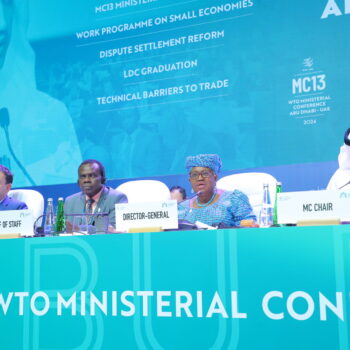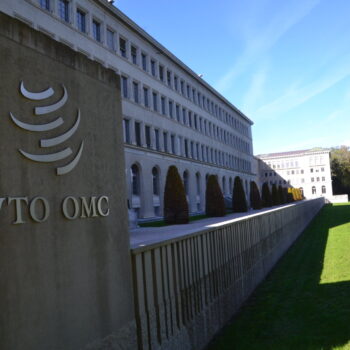Cooperation to improve Europe’s energy security must not come at the expense of the resilient, competitive and low carbon energy system we need for the future, writes Nick Mabey.
Polish Prime Minister Donald Tusk has skilfully used the Ukraine crisis to create momentum behind his idea for an EU Energy Union. With positive backing from President Hollande, and selective support from London and Berlin, the idea will be discussed at the June European Council. This represents a significant achievement in shaping the EU agenda, especially given the muted response to Polish calls for greater solidarity after the Ukraine gas crisis in 2009.
Poland is using the Energy Union debate to drive forward its vision of an EU energy policy based on coordinated purchasing, integrated markets and shared storage, shale gas exploitation, diversification of fossil supply and continued use of coal. They may look to add weight to this agenda by putting forward a Polish candidate for Energy Commissioner. Only the UK seems looks likely to make a serious challenge for this job, and they align with Poland on most issues except coal and coordinated purchasing.
But Tusk’s Energy Union vision is unbalanced. It is strong on the rights of countries to depend on the rest of Europe for emergency gas supplies and support in times of crisis, but weak on the responsibilities every Member State should take to limit their vulnerability to external shocks – whether political or economic.
Those European countries most dependent on Russian gas are also those with the worst energy efficiency per unit GDP. These countries are also most behind in implementing their commitments under the Energy Efficiency Directive. Channelling scarce European public funds to build gas interconnectors and share limited – and expensive – storage capacity will be a poor investment if the gas, once it arrives, is just wasted in inefficient factories and in heating draughty homes.
A balanced Energy Union would incentivise delivery of least cost energy reductions before it subsidises increased supply and interconnection. Access to funds in the EU Connecting Europe facility should be made conditional on delivery of country obligations under the Energy Efficiency Directive. If emergency access to energy storage is to become mandatory then energy efficiency targets must also be binding on countries. Countries cannot be allowed to benefit from the prudent investments of others if they are not prepared to implement the reforms needed to deliver cost-effective energy savings.
This is not just an issue of fairness and economic efficiency but also one of security. Attempts to reduce the political impact of Russian gas imports merely by diversifying fossil fuel supplies do nothing to increase European economic resilience against volatile global fossil fuel prices. It is increasing import prices that have doubled European fuel import bills to over €1 billion a day, exporting jobs and growth outside the EU. Physical energy demand has been flat for a decade, despite economic growth, due to policy-driven efficiency improvements.
The same logic applies to joint EU action on climate change. Member States cannot attempt to improve their energy security at the expense of other EU countries’ climate security. But the Polish proposal to “legitimise” long term use of unabated coal power stations is incompatible with limiting climate change below dangerous levels.
Climate change is already increasing the frequency of damaging extreme weather events in Europe. For example, the recent floods in UK, Germany, Hungary and the Balkans and equally devastating droughts and forest fires in Spain and Greece. Unless the world quickly sets itself on the path to a net zero carbon economy by 2050 then Europe will see rising climate change damages. Without rapid action to reduce greenhouse gas emissions, heat waves such as that that killed 22,000-35,000 people across Europe in 2003 will become normal by 2050, and will represent a cool summer by 2080-100. But the EU will not be able to credibly call on China to do its share by peaking domestic coal use in 2020, if at the same time it agrees to allow increased coal investment in order to preserve energy security.
Europe needs more cooperation to deliver energy and climate security. There are huge economic, environmental and security gains to be made through deeper market integration supported by stronger infrastructure, modern technology and new market models. Modernising EU energy markets to incentivise full use of cost-effective energy reductions, and creating a true single market in energy efficiency services, would bolster EU competitiveness. It would also create vibrant export industries capable of exploiting fast growing global markets for efficient infrastructure and equipment.
Co-operation cannot be a one way street. Those countries that want to improve their energy security through the right to share, must accept their reciprocal responsibilities in creating a resilient, competitive and low carbon European energy system.
This article was first published by EurActiv.


